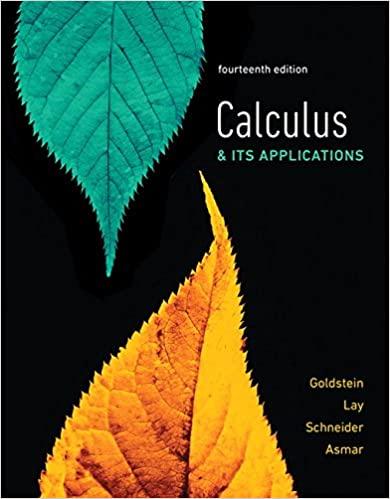According to the National Kidney Foundation, in 1997 more than 260,000 Americans suffered from chronic kidney failure
Question:
According to the National Kidney Foundation, in 1997 more than 260,000 Americans suffered from chronic kidney failure and needed an artificial kidney (dialysis) to stay alive. When the kidneys fail, toxic waste products such as creatinine and urea build up in the blood. One way to remove these wastes is to use a process known as peritoneal dialysis, in which the patient’s peritoneum, or lining of the abdomen, is used as a filter. When the abdominal cavity is filled with a certain dialysate solution, the waste products in the blood filter through the peritoneum into the solution. After a waiting period of several hours, the dialysate solution is drained out of the body along with the waste products.
In one dialysis session, the abdomen of a patient with an elevated concentration of creatinine in the blood equal to 110 grams per liter was filled with two liters of a dialysate (containing no creatinine). Let f (t) denote the concentration of creatinine in the dialysate at time t. The rate of change of f (t) is proportional to the difference between 110 (the maximum concentration that can be attained in the dialysate) and f (t). Thus, f (t) satisfies the differential equation y′ = k(110 - y).
(a) Suppose that, at the end of a 4-hour dialysis session, the concentration in the dialysate was 75 grams per liter and it was rising at the rate of 10 grams per liter per hour. Find k.
(b) What is the rate of change of the concentration at the beginning of the dialysis session? By comparing with the rate at the end of the session, can you give a (simplistic) justification for draining and replacing the dialysate with a fresh solution after 4 hours of dialysis?
Step by Step Answer:

Calculus And Its Applications
ISBN: 9780134437774
14th Edition
Authors: Larry Goldstein, David Lay, David Schneider, Nakhle Asmar





